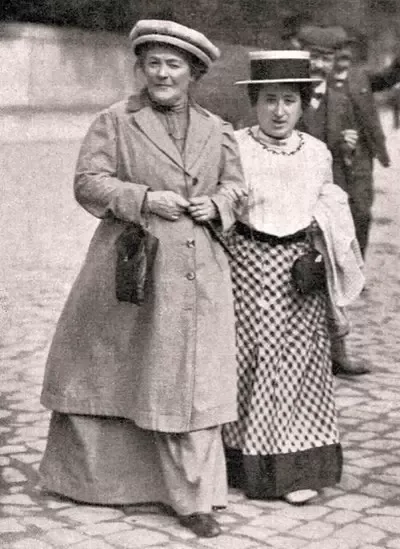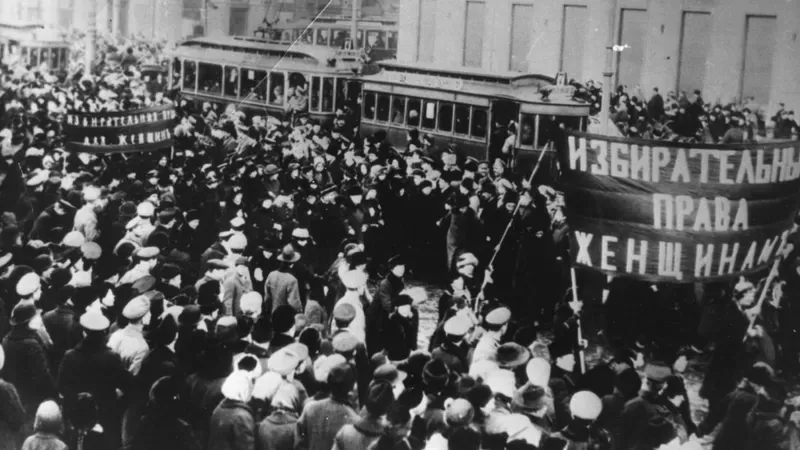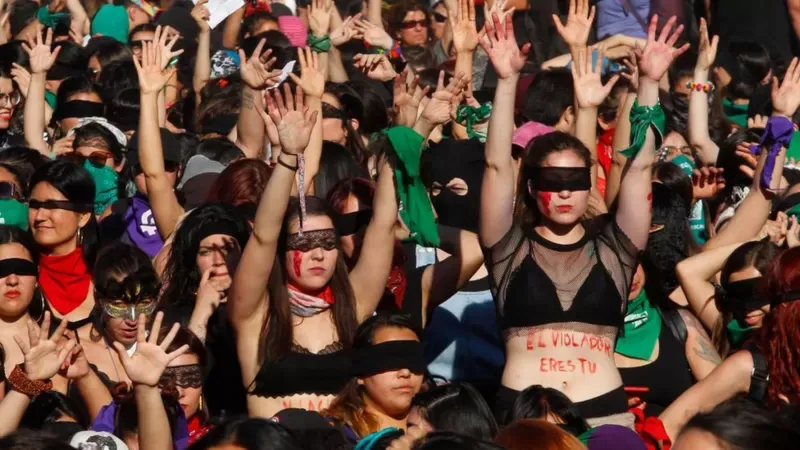March 8 is a prominent date in many parts of the world.
It commemorates the International Women’s Dayformalized by the United Nations in 1975.
SIGHT: “My card no longer works, but I don’t want to leave Russia”: the difficult situation of Latin American students after the invasion of Ukraine
This special day, in the words of the UN, “refers to ordinary women as the architect of history and has its roots in the centuries-old struggle of women to participate in society on an equal footing with men.”
Despite having become a global day for equality, many people still wonder Where are you from and what led to March 8 obtaining this international recognition.
- Zelensky urges the Ukrainians to go on the offensive and lashes out at NATO for not closing the airspace
- The desperate flight of Ukrainian civilians due to the Russian attacks in Irpin
- Who was Molotov and why does he give his name to the explosive devices that the Ukrainians are using against the Russian invasion
To explain it, we have to look back: to the protests that led to an entire revolution. At the end of the 19th century and the beginning of the 20th.
“Women and men are created equal”
International Women’s Day has its roots in the labor movement in the mid-nineteenth century, at a time of great expansion and turmoil in the industrialized world, when women began to raise their voices more and more.
The life of women in the West at that time was a continuous story of limitations: neither the right to vote, nor to manage their own accounts, nor training and with a much lower life expectancy than that of men due to childbirth and mistreatment.
An example of this growing concern and debate among women can be found in 1848, when the Americans Elizabeth Cady Stanton and Lucretia Mott gathered hundreds of people in the first national convention for the rights of women, in the United States.
Both maintained that “all men and women are created equal” and demanded civil, social, political, and religious rights for the collective.
So, they received ridicule, especially regarding the right of women to vote, but they planted a seed that grew in the following years, the UN highlights in a special on women’s activism over the years.
In this context, historians agree to highlight as a direct prelude to International Women’s Day the women’s march that took place in New York in 1908, when some 15,000 demonstrated to demand shorter working hours, better wages and the right to vote.
A year after that, the Socialist Party of America declares National Women’s Day, which is celebrated for the first time in the US on February 28.
In this context, a woman bursts onto the scene who would go down in history as the promoter of international women’s day: German communist Clara Zetkin.
Zetkin suggested the idea of commemorating a global women’s day in 1910 at the International Conference of Working Women in Copenhagen, Denmark.
Her proposal was heard by a hundred women from 17 countries and approved unanimously, although without agreeing on a specific date.

A year later, the first International Women’s Day is celebrated, on March 19, 1911, bringing together more than a million people in Germany, Austria, Denmark and Switzerland.
In addition to the right to vote and hold public office, women’s right to work, professional training and non-discrimination at work were then demanded.
However, in its beginnings,the commemoration (also) serves as a protest against World War I”, recalls the UN.
And therein lies one of the keys to why the date of March 8 ended up being chosen.
Russia and World War I
There are different versions as to why this particular date was chosen.
But the UN highlights the importance of the events that took place in Russia, in the midst of the protests against the Great War.
“In the framework of the movements in for peace Emerging on the eve of World War I, Russian women celebrated their first International Women’s Day on the last Sunday in February 1913. In the rest of Europe, women held rallies around March 8 the following year to protest for the war or to show solidarity with other women”, recalls the organization.
In 1917, and as a reaction to the millions of dead Russian soldiers, the women of that country return to the streets on the last Sunday of February, under the slogan “bread and peace”.

It is a strike that continues for several days and ends up forcing the departure of the Tsar.
“Metalworkers joined their (women’s) protest even though the Bolsheviks saw the women’s mobilization as hasty. On February 25, two days after the women’s insurrection began on International Women’s Day, the Tsar ordered (…) to shoot if necessary to end the women’s revolution”, explains the American historian Temma Kaplan, in “On the Socialist Origins of International Women’s Day.”
The tsar’s measure failed and instead began “the February revolution,” Kaplan says, ending with the abdication of Tsar Nicholas II that March.
The success of Russian women was enshrined soon after: the provisional government that was formed after the withdrawal of the tsar recognized their right to vote.
The date on which the Russian women’s strike began in the Julian calendar, then the reference in Russia, was Sunday, February 23. That same day in the Gregorian calendar was March 8, and that is the date on which it is celebrated now.

In 1945, the United Nations is formed to promote international cooperation after the devastation of World War II and the Charter of this multilateral organization becomes the first international agreement that enshrines gender equality.
Three decades later, in 1975, the UN establishes and celebrates International Women’s Day for the first time on March 8, coinciding with International Women’s Year.
Are there reasons to continue the fight…?
We give the answer with the most recent data from the UN:
- 2.7 billion women cannot access the same job options as men.
- In 2019, less than 25% of parliamentarians were women.
- One in three women continues to suffer gender-based violence.
- Of the 500 people in chief executive positions leading the world’s highest-earning companies, less than 7% are women.
- In the 92-year history of the Oscar Awards, only five women have been nominated in the Best Director category; of the five, only one won the award (Kathryn Bigelow).
- And until 2086 the wage gap will not be closed if the current trend is not reversed.
_____________________________
- Putin says Western sanctions are like a ‘declaration of war’
- Ukraine shows on social networks the missile attack on a helicopter: “This is how the Russian occupiers die!” | VIDEO
- Visa and Mastercard suspend operations in Russia due to the invasion of Ukraine
- The strange act of Vladimir Putin between jokes, flowers and stewardesses in full offensive in Ukraine
- British journalists recorded the moment they were fired upon by Russian troops in Ukraine
- War correspondent in Ukraine: “No one imagined that this would happen with such brutality”
Source: Elcomercio

:quality(75)/cloudfront-us-east-1.images.arcpublishing.com/elcomercio/CEE6WHWRWNFLPNATCGKM574LDM.webp)

:quality(75)/cloudfront-us-east-1.images.arcpublishing.com/elcomercio/RNG2667LU5C2TN5D52MQRIJO3Q.jpg)
:quality(75)/cloudfront-us-east-1.images.arcpublishing.com/elcomercio/SURQNISTGJCVNONLBAUWMYOD2Y.jpg)
:quality(75)/cloudfront-us-east-1.images.arcpublishing.com/elcomercio/CBPCX6OQ6VDTTDCMCTGZFCXOKE.jpg)
:quality(75)/cloudfront-us-east-1.images.arcpublishing.com/elcomercio/R3BFGYGHNBENTF2OR7JTO7S67U.jpg)
